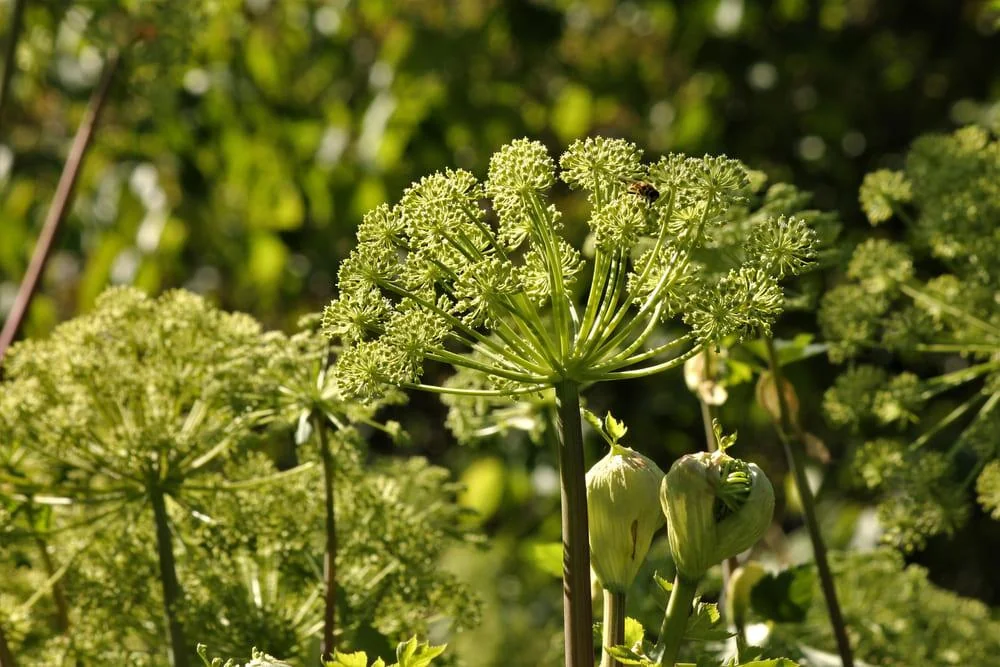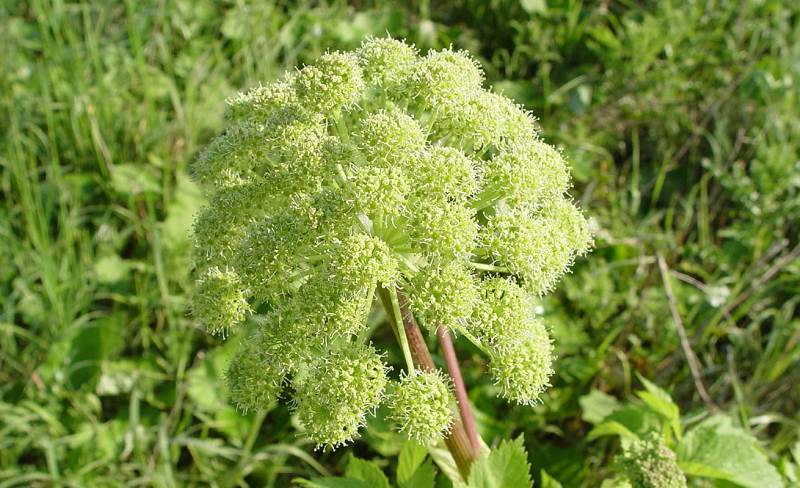Angelica (Angelica archangelica) is a fragrant herb that has been treasured for centuries in traditional European and Asian medicine. Known as the “herb of the angels”, angelica is recognized not only for its aromatic qualities but also for its impressive health benefits. Its roots, stems, and seeds are all used in herbal remedies, teas, and even culinary recipes.
Let’s explore the benefits, properties, and uses of angelica to understand why this ancient plant still holds a place in modern herbal wellness.
Key Properties of Angelica
Angelica is rich in essential oils, coumarins, flavonoids, and vitamins, which give it both medicinal and aromatic qualities. Some of its notable properties include:
- Carminative → Relieves bloating and digestive discomfort.
- Expectorant → Helps clear mucus and soothe respiratory issues.
- Antispasmodic → Relieves cramps and muscle tension.
- Detoxifying → Supports liver and kidney function.
- Circulatory stimulant → Improves blood flow and warms the body.
Health Benefits of Angelica
1. Supports Digestive Health
Angelica is commonly used to ease indigestion, bloating, and gas. Its bitter compounds stimulate digestive juices, improving appetite and nutrient absorption.
2. Relieves Respiratory Issues
Thanks to its expectorant properties, angelica helps loosen mucus, making it beneficial for coughs, bronchitis, and colds. Herbal teas made with angelica root are often used for soothing the respiratory system.
3. Eases Muscle Cramps and Menstrual Pain
Angelica acts as a natural antispasmodic, reducing muscle tension and cramps. Traditionally, it has been used to relieve menstrual discomfort and improve circulation.
4. Supports Detoxification
The herb is believed to promote liver and kidney function, aiding in the body’s natural detox process and supporting overall vitality.
5. Boosts Circulation and Warmth
Angelica has stimulating effects that improve blood flow, making it especially helpful for people who often feel cold or suffer from poor circulation.
6. Strengthens Immunity
With its antioxidant and antibacterial compounds, angelica supports the immune system and helps the body resist infections.
Common Uses of Angelica
- Herbal teas & infusions → For digestion, relaxation, and respiratory relief.
- Tinctures & extracts → Concentrated forms for therapeutic purposes.
- Culinary uses → Candied angelica stems are used in baking; seeds flavor liqueurs like Chartreuse and gin.
- Topical applications → Oils and balms for muscle aches and circulation problems.
- Traditional remedies → Used in European herbalism and Traditional Chinese Medicine (where it’s known as “Dong Quai,” though from a slightly different species).
Precautions and Contraindications
While angelica offers many benefits, it should be used with care:
- Avoid during pregnancy (it may stimulate uterine contractions).
- May increase sensitivity to sunlight (due to furanocoumarins).
- Should not be combined with blood-thinning medications without medical advice.
- Always consult a healthcare provider before prolonged or high-dose use.

Angelica is a powerful and aromatic herb with a long history of use in traditional medicine. From easing digestion and respiratory issues to supporting circulation and detoxification, it offers a wide range of natural health benefits.
Whether enjoyed as a tea, used in cooking, or applied topically, angelica remains a versatile plant for both wellness and flavor.
With proper use and guidance, angelica can truly live up to its name as the “herb of the angels.” ✨

